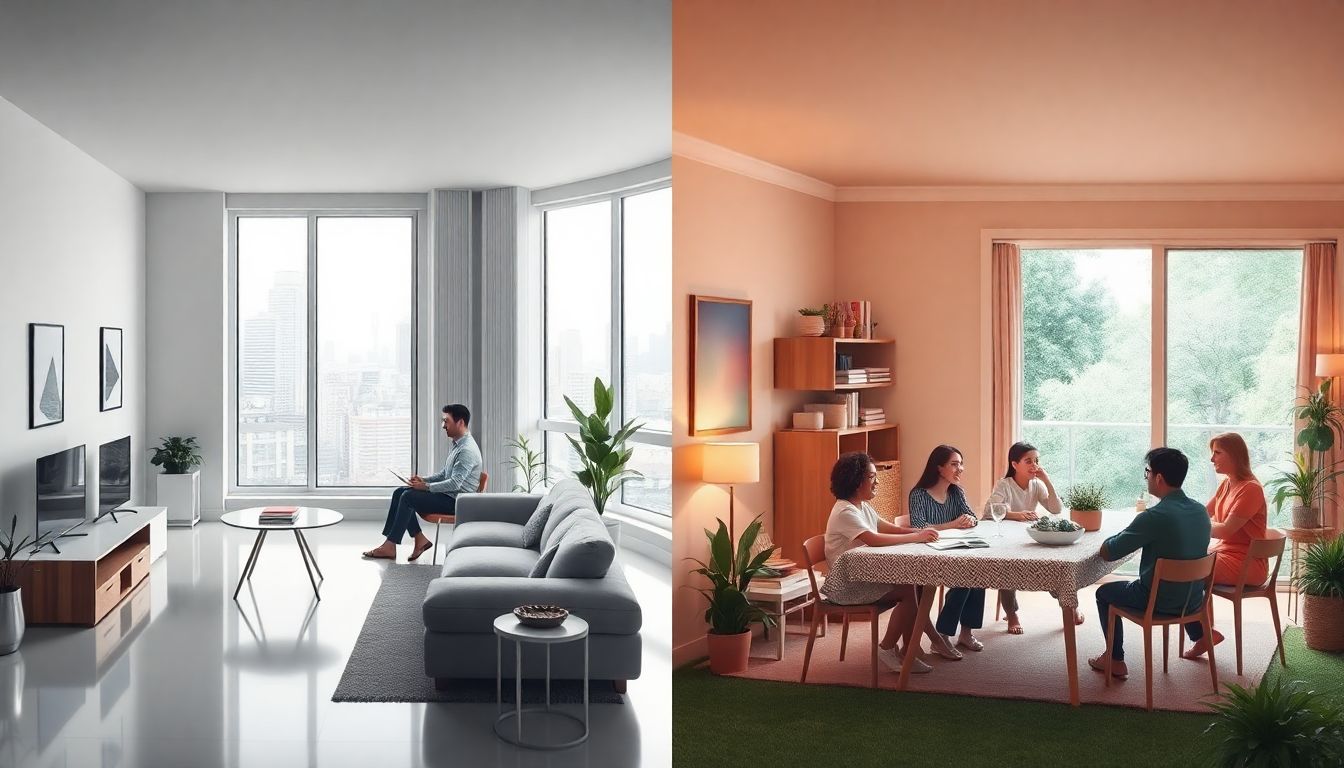
Buying vs. Renting: Making the Right Choice for Your Future
Imagine Sarah and Ben, a young couple, excitedly discuss their future. They sit at their favorite coffee shop, maps spread across the table. "Should we buy a house or keep renting?" Ben asks, a mix of hope and worry in his voice. The debate of buying versus renting is an old one. It has significant financial and lifestyle effects. Choosing what's right depends on many things. This article will explore those factors in detail.
Section 1: The Financial Side of Buying
Buying a home involves many costs. Let's explore them. It's more than just the monthly payment.
Owning: Upfront Costs
Upfront costs can be shocking. There are down payments, often a percentage of the home's price. Closing costs include fees for title insurance and appraisals. Recording fees also add to the total.
For example, a $300,000 house could require a $60,000 down payment (20%). Closing costs could add another $6,000 - $9,000. Save for these upfront expenses before diving in.
Owning: Ongoing Expenses
Owning a home means ongoing expenses. Mortgage payments cover principal and interest. Property taxes and homeowners insurance are included. It's called PITI. HOA fees might apply too. Don't forget maintenance.
Budgeting for unexpected repairs is key. A leaky roof or broken appliance can be costly. Factor that in.
Building Equity and Appreciation
Mortgage payments slowly build equity. This is the portion of the home you truly own. Property values may also rise, which builds equity even faster.
Imagine a sample mortgage. Over 5 years, equity grows modestly. After 10 years, it accelerates. After 20, you own a large share. But, keep an eye on market changes, which could cause depreciation.
Section 2: The Financial Side of Renting
Renting has its financial perks too. Let's see how it stacks up. There are costs, but also flexibility.
Renting: Monthly Rent Payments
Rent is your main monthly cost. It varies based on location and apartment size. Compare rent to potential mortgage payments. This will help determine affordability.
Negotiating rent is sometimes possible. Try during the off-season. Or, offer a longer lease for a discount.
Renting: Additional Costs
Renters need insurance to protect their belongings. Utilities like water and electricity are often separate. Parking and pet fees might apply as well. Don't forget the security deposit.
Moving expenses are another factor. These can add up with each new place. Consider them in your budget.
Renting: Investment Opportunities
Renting can free up money for investments. Instead of a down payment, invest in stocks. Bonds and mutual funds are other options.
These investments might earn more than home appreciation. Explore different ways to grow your wealth. Diversify your investments.
Section 3: Lifestyle Considerations
It isn't all about the money. Think about your lifestyle. How does buying or renting fit?
Homeownership: Stability and Freedom
Owning a home offers stability. You build roots in a community. You also gain freedom to customize. Renovate the kitchen or paint the walls your favorite color.
Consider someone who loves gardening. Owning a yard provides endless joy. Homeownership is about creating a space that's truly yours.
Renting: Flexibility and Mobility
Renting provides flexibility. You can move easily for new jobs or experiences. Maintenance isn't your problem. The landlord handles repairs.
Think of someone who travels a lot for work. Renting is ideal. Or maybe you want to explore different cities. Renting makes it simple.
Section 4: Location, Location, Location
Location matters a lot when deciding. Where do you want to live? This can influence the choice to buy or rent.
Buying: Long-Term Investment in a Specific Area
Buying ties you to a specific neighborhood. Research the area's schools and amenities. This affects your property value and life quality.
Choosing a home in a good school district is a smart long-term investment. It can appreciate your home's value. Your children also receive a top-tier education.
Renting: Access to Desirable Neighborhoods
Renting lets you live in pricey areas. Buying there might be impossible. Enjoy trendy downtown areas without the huge mortgage.
Renting offers access to amenities you might not otherwise afford. This includes restaurants and entertainment.
Market Conditions: Understanding Local Trends
Watch local housing trends. Housing shortages drive up prices. High rental rates make buying more appealing. Consider what's happening nearby.
Section 5: Your Personal Circumstances
Your situation is unique. Think about your finances and plans. This should influence your decision.
Financial Stability and Credit Score
A stable income is key. Save money and check your credit score. A good credit score helps secure a mortgage.
Check your credit reports often. Work on improving your score before you apply for a mortgage. It can save you money.
Long-Term Goals and Plans
Think about your career and family. What about retirement? These long-term goals matter. They influence your housing needs.
Risk Tolerance and Investment Strategy
How much risk are you okay with? What is your investment strategy? These factors impact your choice. Are you comfortable with the risks of homeownership? Or do you prefer the flexibility of renting?
Conclusion
Think about these key things: finances, lifestyle, location, and situation. There's no one right answer. Weigh your options. Talk to a financial advisor. They can offer custom help.
The best choice fits your goals. Think hard about your priorities. Make a choice that feels right for you.